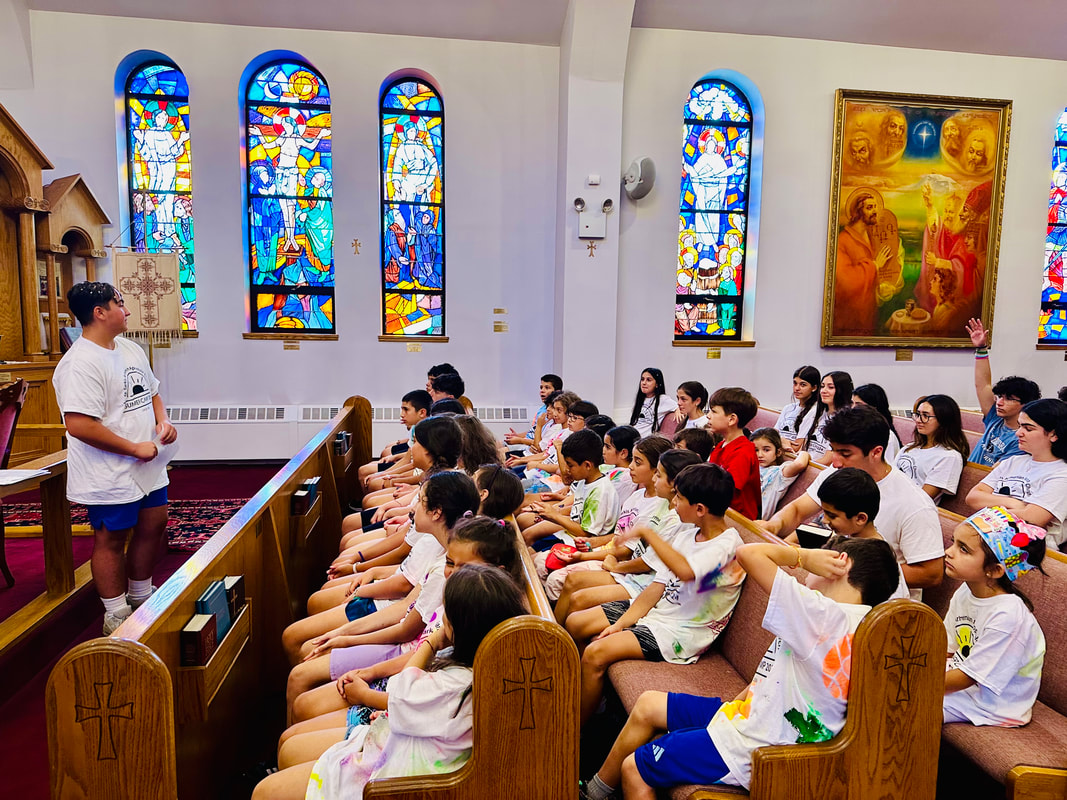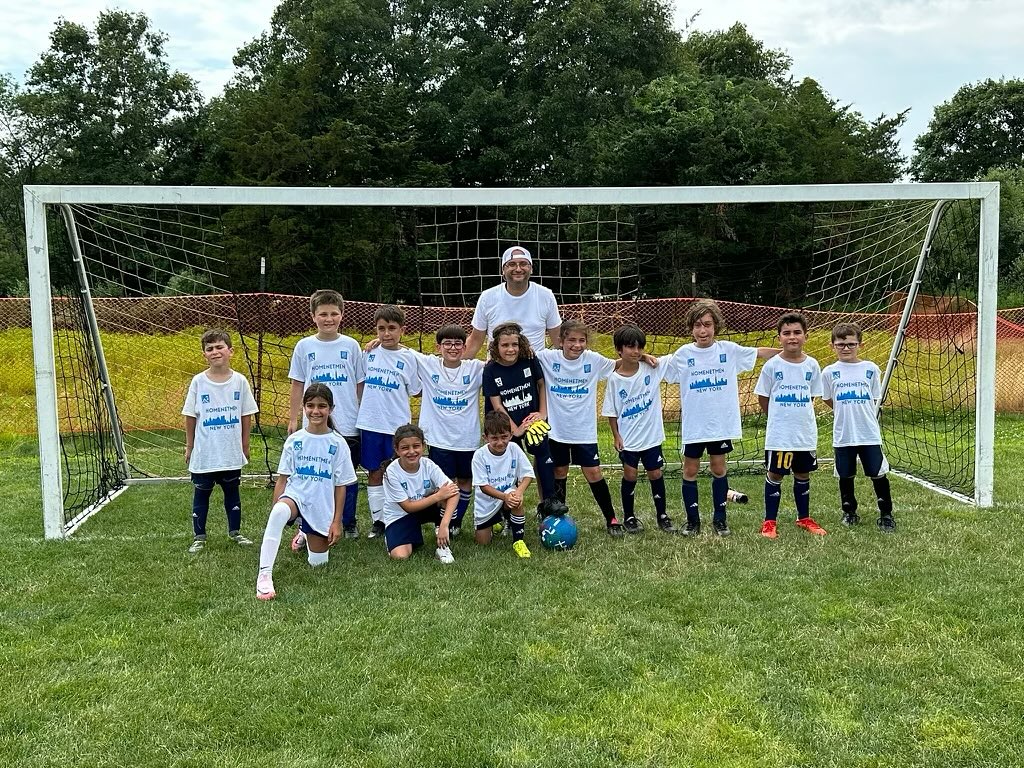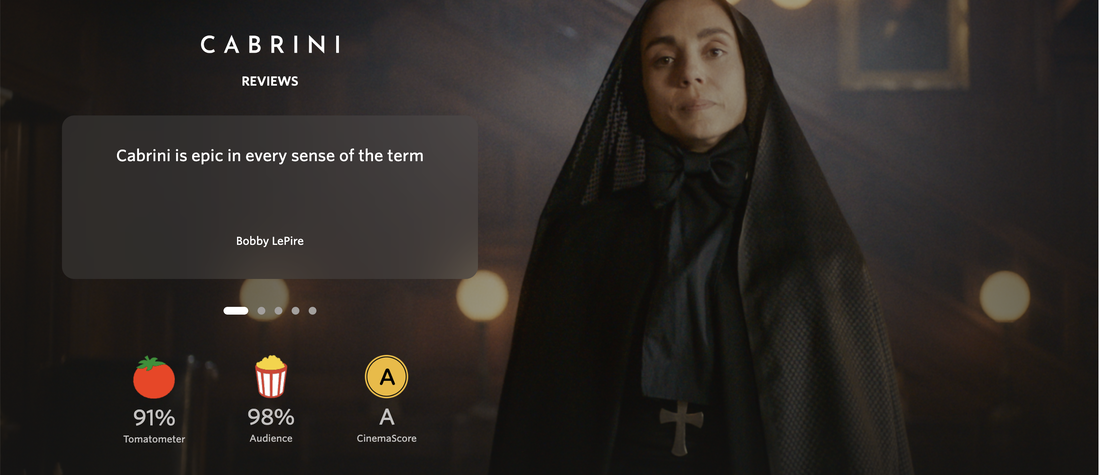"The Word of God is Living and Active"
The Pastor's Update #15
At its peak, the St. Sarkis Church summer camp program had over 100 participants and more than a dozen counselors. However, that’s not how our camp started. Our first experiment with the summer camp was almost two decades ago and had only 25 enthusiastic participants. The joy we experienced working with the small group of campers motivated us to keep improving and growing our program for the following years. After reaching big numbers before the pandemic, we have come full circle and returned to our roots, working with fewer campers.
One of the most exciting features that we truly enjoyed this year was the fact that we trained our teenagers and assigned them as counselors for our Summer Camp program. One of the stories that kept playing in my head was how, fifteen years ago, we wrapped up our two weeks of camp and went to the hospital that same night when my wife, Annie, gave birth to our daughter, Laurie. And now, Laurie and her friends are the counselors who are not only responsible for the group of young campers but also speak their language and interact with them in a way that I personally cannot.
At the start of this year's camp, I decided to have our young counselors take turns leading Church Time sessions. Each counselor was given a day to teach and asked to choose their favorite Bible story or another church-related topic to cover. This unique approach brought a fresh perspective to the sessions, enriching the learning experience for all participants. Each day, a different teenage counselor led the session, choosing various passages from the Bible and sharing their unique insights. Some chose well-known Bible stories, while others shared less commonly known material. They prepared handouts and used analogies to illustrate their points, creating an engaging learning environment that continued until the last day of camp.
This experiment has brought me joy not only because our young adults are assuming leadership roles, but also because they had the opportunity to explore the Word of God from a fresh perspective. Teaching the Bible involves understanding it first, and to understand the Bible, one must grapple with it. The Word of God challenges us. How can one read verses like "Blessed are the peacemakers, for they will be called children of God" (Matthew 5:9) or "Then Peter came and said to him, 'Lord, if my brother or sister sins against me, how often should I forgive? As many as seven times?' Jesus said to him, 'Not seven times, but, I tell you, seventy-seven times'" (Matthew 18:21-22), and other teachings such as "Love your enemy," "Do not judge, or you too will be judged," "Turn the other cheek," "The last will be first, and the first will be last," and "Love your neighbor as yourself," without being prompted to reflect on how these teachings should guide their lives. St. Paul, who was fully immersed in the transformative power of the Word of God, writes the following: "Indeed, the Word of God is living and active and sharper than any two-edged sword, piercing until it divides soul from spirit, joints from marrow; it is able to judge the thoughts and intentions of the heart" (Hebrews 4:12).
As I sat at the corner and listened to the explanations of our young counselors, I could sense their deep connection to the living and active Word of God. They experienced it in a way that was so different from simply listening to a sermon, reading the scriptures, or praying alone. Their serious commitment to sharing their faith echoed the example of the early followers of Jesus: Disciples called to make disciples. As I watched our young counselors, I couldn't help but feel a rush of emotions. I thought to myself; perhaps this is the same feeling that St. Paul had when he wrote these encouraging words to young Timothy: "Let no one despise your youth, but set the believers an example in speech and conduct, in love, in faith, in purity" (1 Timothy 4:12).
May the seeds of faith sown during these past two weeks bear abundant fruit.







 RSS Feed
RSS Feed
